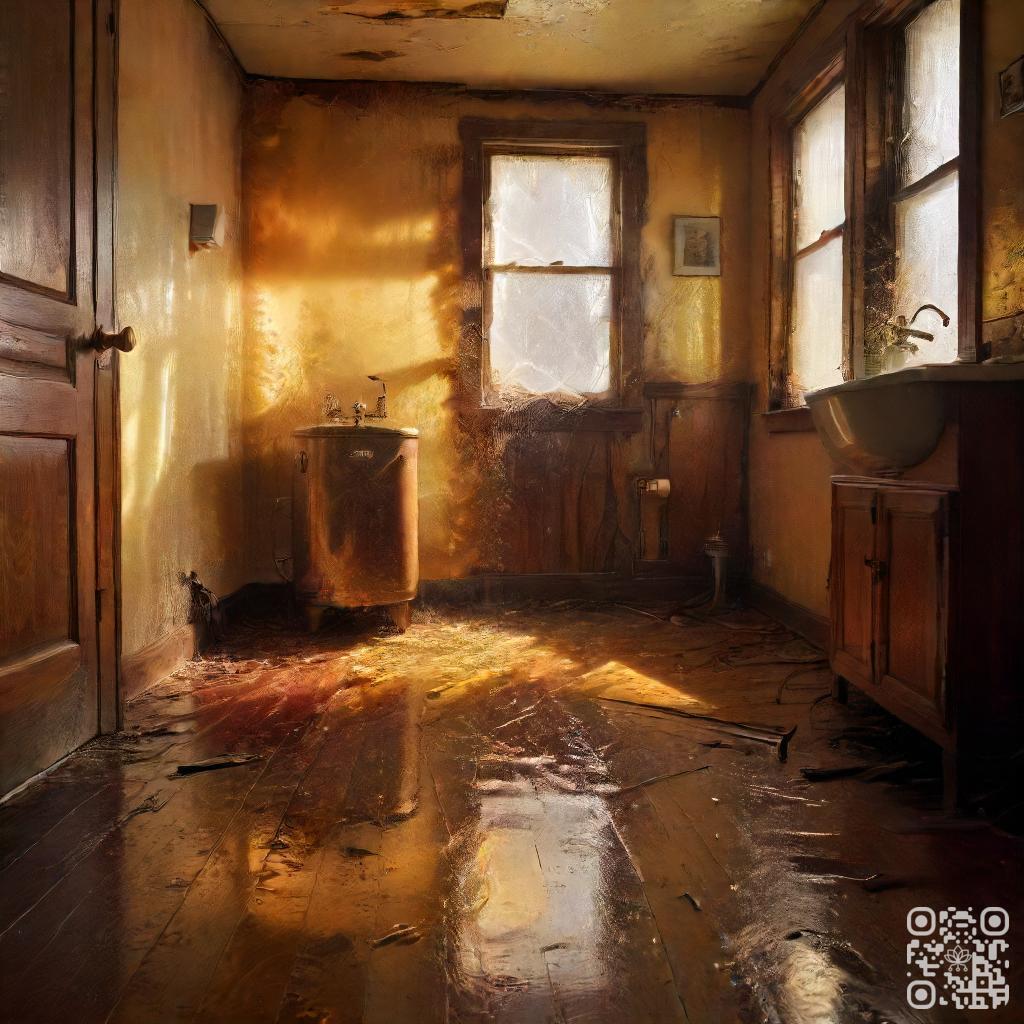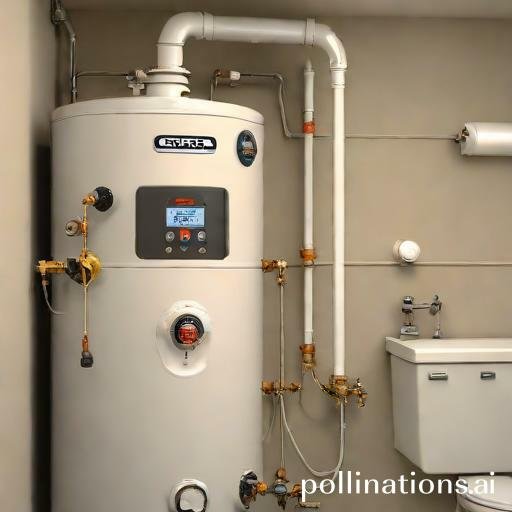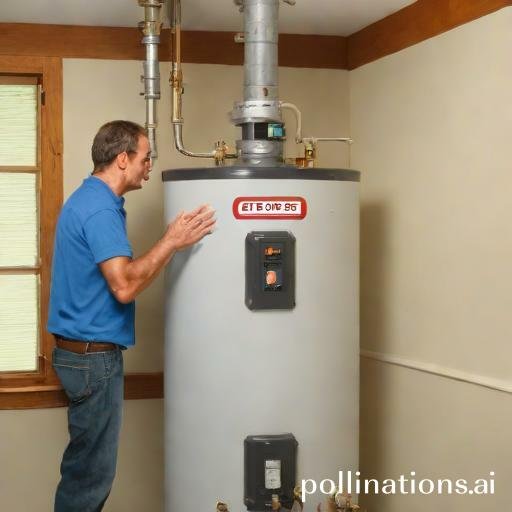
II. Regular maintenance and inspection can prevent water heater leaks.
III. Prompt action is necessary if a water heater leak is detected to minimize property damage.
Water heater leaks can cause significant property damage if not addressed quickly. As a homeowner or renter, it’s crucial to understand the potential risks associated with water heaters and how to prevent leaks from occurring.
This guide will provide you with essential information on the causes of water heater leaks, signs to look out for, and steps you can take to prevent water damage to your property.
Causes of Water Heater Leaks
1. Corrosion and rust
One of the main causes of water heater leaks is corrosion and rust. Over time, the metal components of the water heater can deteriorate, leading to small holes or cracks. This can happen due to exposure to moisture, chemicals in the water, or simply from the natural aging process of the heater. When corrosion and rust occur, water can leak out of the tank and cause damage to the surrounding area.
For example, if the anode rod, which is designed to attract corrosive elements, becomes worn out or ineffective, the tank may be more susceptible to corrosion. Regular maintenance and inspection can help identify and address any corrosion issues before they lead to leaks.
2. Loose drain valve
Another common cause of water heater leaks is a loose or faulty drain valve. The drain valve is typically located at the bottom of the tank and is used to empty or flush out the tank. If the valve is not properly tightened or if it becomes damaged, water can gradually leak out. This can be a simple fix by tightening the valve or replacing it if necessary.
Indispensable to regularly check the drain valve and ensure it is in good working condition to prevent any potential leaks. Additionally, it is recommended to have a professional inspect and maintain the valve during routine water heater maintenance.
3. High water pressure
High water pressure can also contribute to water heater leaks. When the water pressure is too high, it can put excessive strain on the tank and its components, leading to leaks. This can be particularly problematic if the water pressure fluctuates significantly or if it exceeds the recommended level for the water heater.
Installing a pressure regulator or reducing valve can help regulate the water pressure and prevent potential leaks. Regularly monitoring the water pressure and adjusting it as needed can also help maintain the integrity of the water heater.
4. Sediment buildup
Sediment buildup is another factor that can cause water heater leaks. Over time, minerals and debris can accumulate at the bottom of the tank, forming sediment. This sediment can create a barrier between the heating element and the water, causing the heating element to overheat and potentially crack or fail.
Regularly flushing the water heater to remove sediment buildup can help prevent leaks and prolong the lifespan of the heater. This can be done by attaching a hose to the drain valve and allowing the tank to empty out until the water runs clear.
| Cause | Possible Solution |
|---|---|
| Corrosion and rust | Regular maintenance and inspection; replacing worn-out anode rod |
| Loose drain valve | Tighten or replace the valve; professional inspection during maintenance |
| High water pressure | Install pressure regulator or reducing valve; monitor and adjust water pressure |
| Sediment buildup | Regular flushing to remove sediment; attach hose to drain valve |
Signs of Water Heater Leaks
Water heater leaks can lead to significant damage if not addressed promptly. By being aware of the signs of water heater leaks, you can take proactive measures to prevent further issues. Here are some key indicators to look out for:
1. Visible water around the tank
If you notice water pooling around the base of your water heater tank, it is a clear sign of a leak. This could be due to a faulty valve, loose connections, or even a crack in the tank itself. Indispensable to address this issue immediately to avoid any further damage.
2. Strange noises coming from the tank
Unusual noises, such as popping or rumbling sounds, coming from your water heater can indicate a potential leak. These noises are often caused by sediment buildup or a malfunctioning heating element. Ignoring these sounds could lead to more severe leaks or even a complete system failure.
3. Reduced hot water supply
If you find that your hot water supply is not as plentiful as it once was, it could be a sign of a leak in your water heater. Leaks can cause a loss of pressure or hinder the heating process, resulting in insufficient hot water. This can be particularly inconvenient, especially during colder seasons.
4. Discolored or foul-smelling water
When you turn on your hot water tap and notice discolored or foul-smelling water, it is indicative of a potential water heater leak. This could be caused by rust or sediment buildup within the tank, which can contaminate the water supply. It is crucial to address this issue promptly to ensure the safety and quality of your water.
Prevention of Water Heater Leaks
Water heater leaks can cause significant damage to your home and lead to costly repairs. By taking preventive measures, you can avoid these issues and ensure the longevity of your water heater.
1. Regular maintenance and inspection
Regular maintenance is crucial for the proper functioning of your water heater and to prevent leaks. Schedule annual maintenance checks with a licensed professional to ensure that all components are in good condition. They will inspect the tank, pressure relief valve, and other parts to identify any potential issues.
2. Installation of a leak detector
An effective way to prevent water heater leaks is by installing a leak detector. These devices can detect even small leaks and alert you before they escalate into bigger problems. Place the detector near the water heater and ensure it is connected to an alarm system or your smartphone for immediate notifications.
3. Replacement of an old water heater
Old water heaters are more prone to leaks and other malfunctions. If your water heater is nearing the end of its lifespan or has a history of leaks, it may be time for a replacement. Consult with a licensed professional to determine the best type and size of water heater for your needs and ensure proper installation.
4. Proper installation by a licensed professional
Improper installation is a common cause of water heater leaks. To avoid this, always hire a licensed professional for the installation. They have the knowledge and expertise to ensure that the water heater is correctly connected, the pipes are secure, and all safety measures are in place.

Steps to Fix Water Heater Leaks
1. Shut off the power supply and water source
To fix a water heater leak, the first step is to ensure your safety by shutting off the power supply and water source. This will prevent any potential accidents or further damage.
2. Drain the water from the tank
Next, you need to drain the water from the tank. Locate the drain valve at the bottom of the tank and attach a hose to it. Open the valve and let the water flow out into a suitable drainage area.
3. Identify and repair the source of the leak
After draining the water, it’s time to identify the source of the leak. Inspect the tank and its connections, looking for any signs of damage or corrosion. Common areas where leaks occur include the pressure relief valve, drain valve, and inlet/outlet pipes.
If you find a faulty component or a damaged pipe, you will need to repair or replace it. This may involve tightening loose connections, replacing faulty valves, or patching up small leaks with appropriate sealants.
4. Refill the tank and turn on the power supply
Once you have fixed the source of the leak, it’s time to refill the tank. Close the drain valve and remove the hose. Slowly turn on the water supply, allowing the tank to fill up. Check for any new leaks as the tank fills.
Finally, turn on the power supply to the water heater. Depending on the type of heater, this may involve flipping a switch or turning a dial to the desired temperature setting. Allow the water heater to heat up and monitor for any further leaks.
| Step | Description |
|---|---|
| 1 | Shut off the power supply and water source |
| 2 | Drain the water from the tank |
| 3 | Identify and repair the source of the leak |
| 4 | Refill the tank and turn on the power supply |

Water Heater Leak Damage and Insurance Coverage
As for water heater leaks, homeowners may find themselves dealing with various types of property damage. Cognizing the potential risks and the coverage provided by homeowner’s insurance is essential for protecting your home and finances.
1. Types of Property Damage Caused by Water Heater Leaks
- Structural Damage: A leaky water heater can cause significant damage to the structure of your home. The continuous flow of water can weaken walls, floors, and ceilings, leading to costly repairs.
- Mold and Mildew: Excessive moisture from a water heater leak creates a perfect environment for mold and mildew growth. These harmful substances can cause health issues and further damage to your property.
- Electrical Damage: If the leak reaches electrical components near the water heater, it can result in electrical damage or even fires. This poses a serious safety hazard for homeowners.
- Personal Belongings: Water damage from a leaking water heater can ruin valuable personal belongings, such as furniture, electronics, and sentimental items.
2. Homeowner’s Insurance Coverage for Water Heater Leaks
Most homeowner’s insurance policies provide coverage for water heater leaks, but the extent of coverage may vary. It’s crucial to review your policy and understand the specific details regarding water damage coverage.
Types of Coverage:
- Dwelling Coverage: This type of coverage typically includes repairs to the structural damage caused by a water heater leak.
- Personal Property Coverage: Your insurance policy may cover the cost of replacing or repairing damaged personal belongings affected by the water leak.
- Additional Living Expenses: If your home becomes uninhabitable due to water heater leak damage, your policy may provide coverage for temporary living arrangements and additional expenses.
What to Do in Case of a Water Heater Leak:
If you experience a water heater leak, it’s crucial to take immediate action to minimize damage and ensure your safety:
- Turn Off the Water Supply: Locate the shut-off valve near your water heater and turn off the water supply to stop the leak.
- Electricity and Gas: If your water heater is powered by electricity or gas, turn off the corresponding power source to prevent any electrical or fire hazards.
- Contact Your Insurance Provider: Inform your insurance provider about the water heater leak and follow their instructions regarding the claims process.
- Document the Damage: Take photos or videos of the damage caused by the water heater leak as evidence for your insurance claim.
- Contact a Professional: Hire a qualified plumber or water damage restoration specialist to repair the water heater and mitigate any further damage.
Bottom Line
Water heater leaks can cause significant property damage and pose a safety risk. Regular maintenance and inspection can help prevent leaks and prolong the life of your water heater. If you notice any signs of a leak, such as water pooling around the unit or a decrease in hot water supply, pivotal to address the issue promptly. Ignoring a leak can lead to costly repairs and even more extensive damage to your home. In the event of a leak, turn off the water supply to the heater and contact a professional plumber for repairs. Taking proactive measures to prevent leaks and addressing them promptly can save you time, money, and stress in the long run.
Read More:
1. Impact Of Leaks On Neighboring Units In Water Heater
2. Diy Water Heater Leak Detection Methods
















